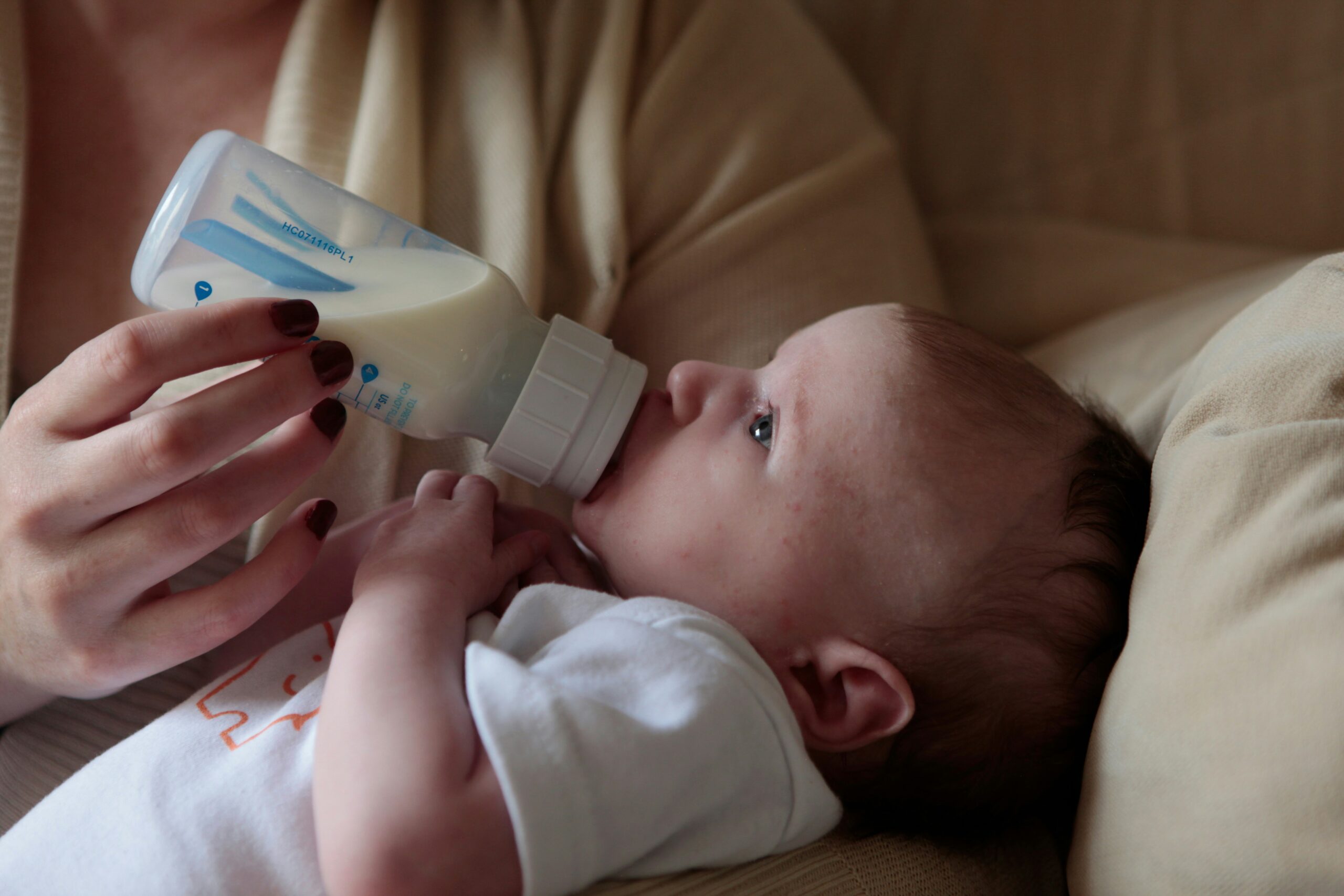Breastfeeding is truly one of nature’s most beautiful gifts, wrapping up nutrition, love, and a sprinkle of magic all in one. Have you ever wondered exactly what is in your milk that makes it so perfect? This post summarizes the composition of breast milk, exploring its unique components and the incredible benefits it offers to your little one.
If you’re reading this during a pump session, take just a minute to appreciate the fact that you are making something entirely unique and customized to your baby’s needs – your milk is truly the ideal food for your baby. Here’s why:
UNIQUE COMPONENTS OF BREAST MILK
- Human milk oligosaccharides (HMOs): HMOs are the third most abundant solid component in human milk, after lactose and fat. There are over 200 different types of HMOs, and the composition in your milk is unique to you, like a fingerprint. This variability means that each mother’s milk is tailored to her own infant’s needs, providing personalized nutrition and immune support. Unlike other milk components that nourish your baby directly, HMOs are unique because your infant can’t actually digest them. Instead, their primary role is to nourish beneficial gut bacteria, particularly bifidobacteria, which are vital for a healthy gut microbiome. They also play an important role in strengthening the gut barrier, protecting against infections, and promoting immune system development.
- Microbiota: Breast milk contains beneficial bacteria that help in establishing your infant’s gut microbiome. Breastfed infants generally have a gut microbiota dominated by Bifidobacterium, thanks to components in breast milk like HMOs that promote the growth of these beneficial bacteria. This early microbial colonization is pivotal for developing your infant’s immune system, helping protect against autoimmune diseases, preventing the development of allergies, and research now suggests that it can even promote neurodevelopment.
THE BASICS OF BREAST MILK
Human breast milk is predominantly water, making up about 87%-88% of its composition. This high water content is crucial for keeping your baby adequately hydrated, which is especially important in the first days of life. The rest of the magic of breast milk lies in the remaining 12%-13% of solid components. This is made up of macronutrients—carbohydrates, proteins, and fats—along with a rich array of vitamins, minerals, enzymes, and unique bioactive compounds.
BREAST MILK MACRONUTRIENTS
- Carbohydrates: Lactose is the main carbohydrate in breast milk and is a significant energy source for your baby, fueling their rapid growth and high energy demands. Carbohydrates also aid in the absorption of calcium for strong bone development.
- Proteins: The protein content in your breast milk is perfectly tailored to be easily digestible for your baby’s immature digestive system. These proteins are not just building blocks for the growth and repair of body tissues but also act as protective agents against infections, aid in nutrient absorption, and contribute to cognitive development.
- Fats: The fats in your milk are easily absorbed and utilized by your baby’s body and serve as their primary source of energy. Essential fatty acids (like DHA or docosahexaenoic acid and AA or arachidonic acid) in breast milk are instrumental in supporting cognitive development, vision, and overall brain function. They also assist in vitamin absorption and contribute to healthy weight gain and development.
BIOACTIVE COMPONENTS OF BREAST MILK
- Immunoglobulins: The various immunoglobulins (or antibodies) in your milk are your baby’s first line of defense against infections. Your baby “borrows” from your immune system until their own immune system is mature enough to take over – this is called passive immunity.
- Growth Factors: These are crucial for the development and maturation of various tissues, including the gut lining. By supporting the structural development of the gut, growth factors in your milk help ensure that your little one can efficiently absorb nutrients.
- Hormones: They play a role in regulating appetite and sleep, among other physiological functions. The hormones in your milk help your baby to establish a feeding rhythm and sleep pattern.
- MicroRNAs: These small, non-coding RNA molecules can influence the expression of genes. They have the potential to affect a wide range of developmental and physiological processes, from immune function to metabolism, possibly impacting your baby’s health well beyond the breastfeeding period.
THAT’S RIGHT – YOUR MILK IS MAGIC
One of the most remarkable characteristics of your breast milk is its dynamic composition. The nutrient profile of your milk can change from feed to feed, adapting to your growing baby’s needs. The exact composition of your milk is also affected by factors such as your diet, the time of day, and the age of your baby. It is perfectly fine-tuned for your little one – giving them exactly what they need, exactly when they need it. So next time you pick up that breast pump – whether it’s at 2am in your bedroom or 2pm at your Work & Mother Lactation Suite – it’s worth remembering that you are, quite literally, pumping magic!
References:
- Kim, S. Y., & Yi, D. Y. (2020). Components of human breast milk: From macronutrient to microbiome and microRNA. Clinical and Experimental Pediatrics, 63(8), 301–309. https://doi.org/10.3345/cep.2020.00059
- Bode, L. (2020). Human Milk Oligosaccharides: Structure and Functions. Nestle Nutr Inst Workshop Ser. https://doi.org/10.1159/000505339.
- Wernroth, ML., Peura, S., Hedman, A.M. et al. Development of gut microbiota during the first 2 years of life. Sci Rep 12, 9080 (2022). https://doi.org/10.1038/s41598-022-13009-3
- Luck B, Engevik MA, Ganesh BP, Lackey EP, Lin T, Balderas M, Major A, Runge J, Luna RA, Sillitoe RV, Versalovic J. Bifidobacteria shape host neural circuits during postnatal development by promoting synapse formation and microglial function. Sci Rep. 2020 May 8;10(1):7737. https://doi.org/10.1038/s41598-020-64173-3.
This article was written by Berkley Luck, Ph.D., founder of Milkify, the most trusted breast milk freeze-drying service around. To learn more about Milkify and receive a special discount visit our Shop and Tenant Log-In pages.



